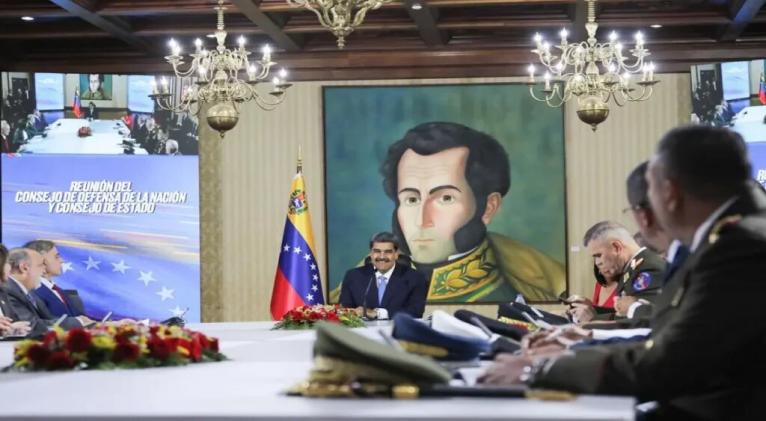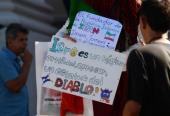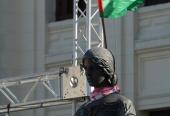President Maduro Signs Decree to Create National Cybersecurity Commission

Since 28 July, 25 institutions of the Venezuelan state have been affected, while another 40 are under investigation.
Venezuela’s president, Nicolás Maduro, signed the decree that endorses the creation of a National Commission for Cybersecurity on Monday, during the meeting of the Defense Council, where the Venezuelan minister of science and technology, Gabriela Jiménez, presented a report on the cyber attacks against her country.
According to the owner of the Venezuelan entity, when analyzing the volume, incidence and duration of attacks it is clear that it is backed by a technological and financial capacity.
“To attack for an hour a terabyte of attack, it is being funded with at least one thousand dollars on each of the attacks, so we have received 30 million attacks per minute,” he said.
Jiménez also reported that analysis of the attacks on Venezuelan state platforms showed that 98 percent are farm services with sophisticated desktop computers and two percent with mobile platforms.
He also highlighted the diversity of attacks, with more than five types directed at the technological platforms of the Venezuelan state, such as the services provided by the Presidency of the Republic, the National Electoral Council (CNE), the telecommunications company Cantv, the National Integrated Service of Customs and Tax Administration (Seniat), Petróleos de Venezuela SA (Pdvsa), among others.
In this regard, he said that since July 28, 25 institutions of the Venezuelan state have been affected, while another 40 are under investigation.
“We have the support of the directors of technology of each of the institutions, namely ministries, state agencies, companies, mayors and governorates, as well as private entities and telecommunications companies, media too,” he said.
Similarly, it indicated that 65.52 percent of the attacks were based on denial of services; 17.24 percent were associated with theft of information through emails with malicious software; 3.45 percent were linked to hijacking routes; 6.90 percent to DNS expansion and 3.44 percent to website deconfiguration.
“We have not had a rest during the cyber attacks. All the platforms of the state have been attacked in multiple ways,” he said.
Jiménez further explained that the US platform Netscout, which provides services for denial of cyber attacks, reports that the Venezuelan state has been one of the most cyberattacked nations during the months of July and August.
Meanwhile, the Russian platform Kaspersky reports that the first country most attacked in July and in the first week of August has been Venezuela.
Jiménez said the National Council on Cybersecurity “to ensure that the Republic’s development in this area is fully attended to and that all these technological platforms are strengthened, bearing in mind that there are countries which have devoted considerable efforts to military operations and attack countries such as Venezuela”.
For his part, the Venezuelan president indicated that technological imperialism, with digital social networks and the media of the extreme right, has been the spearhead for continuing manipulation on paid criminals, armed, convicted and confessed and the narrative that is built around them as political prisoners.
In that sense, he said that one of the institutions that has taken off its mask and is against Venezuela is the Carter Center, saying that there was no cyber attack in Venezuela, they should cover up the cyber attack of July 28″.
The head of state called the behaviour of the Carter Center vulgar, “which pretended to be used with the prestige they had”.














Add new comment